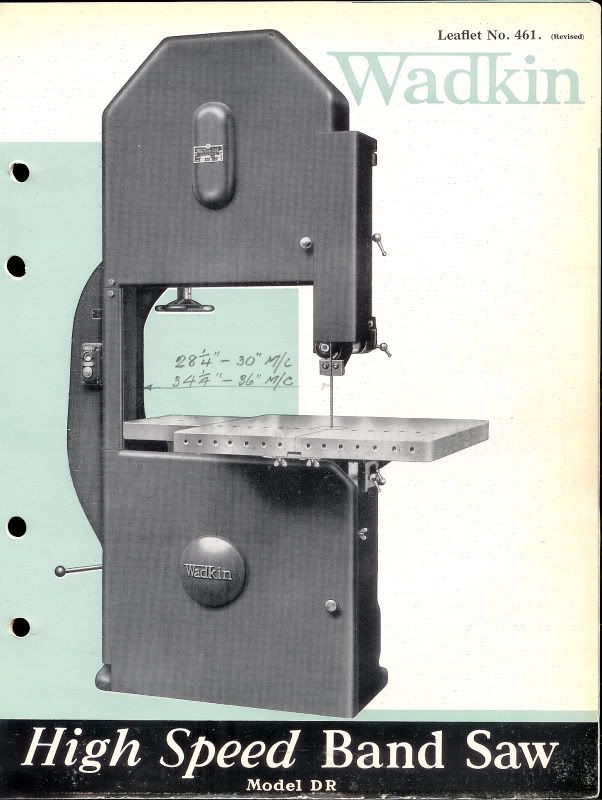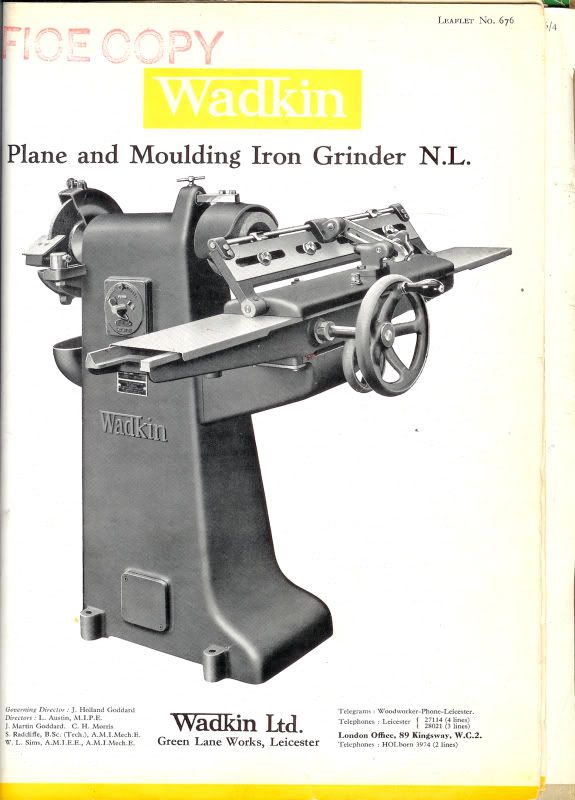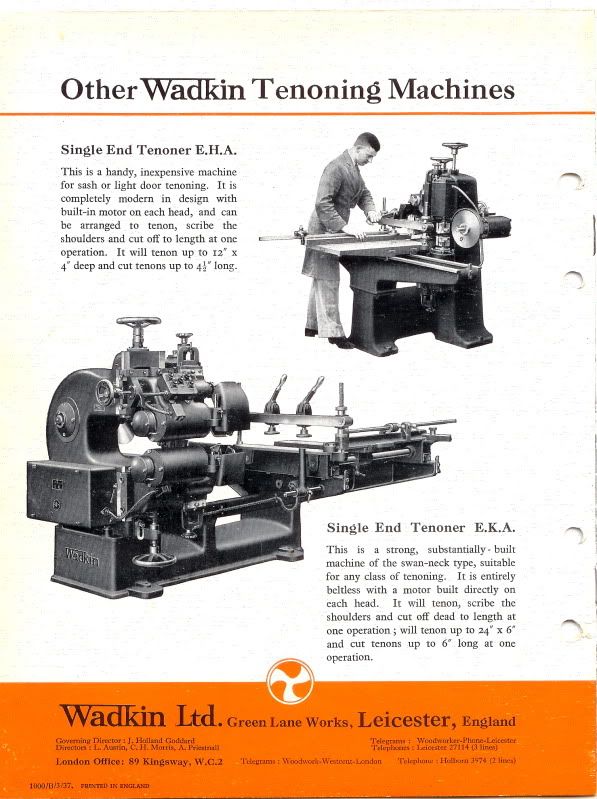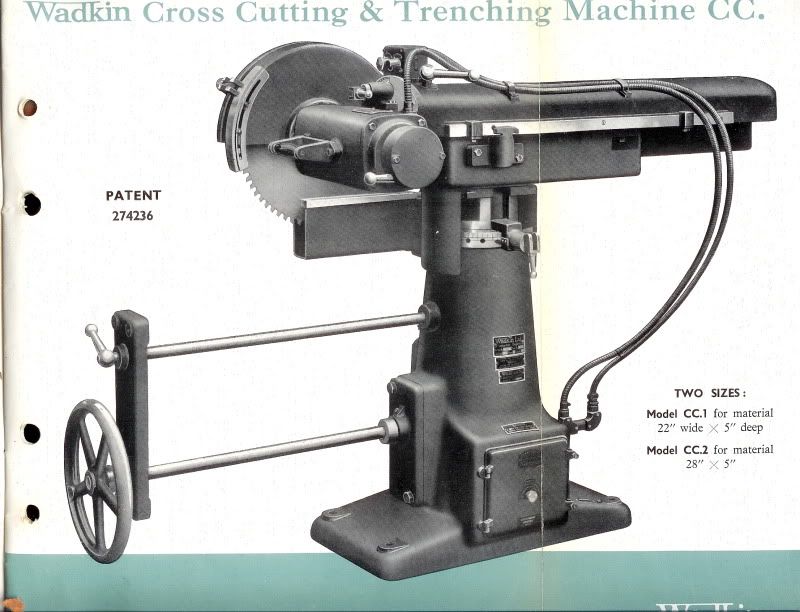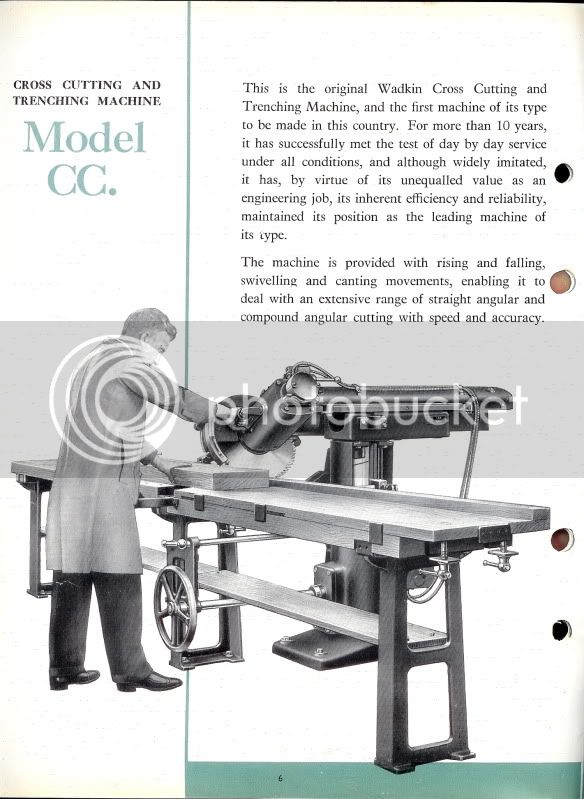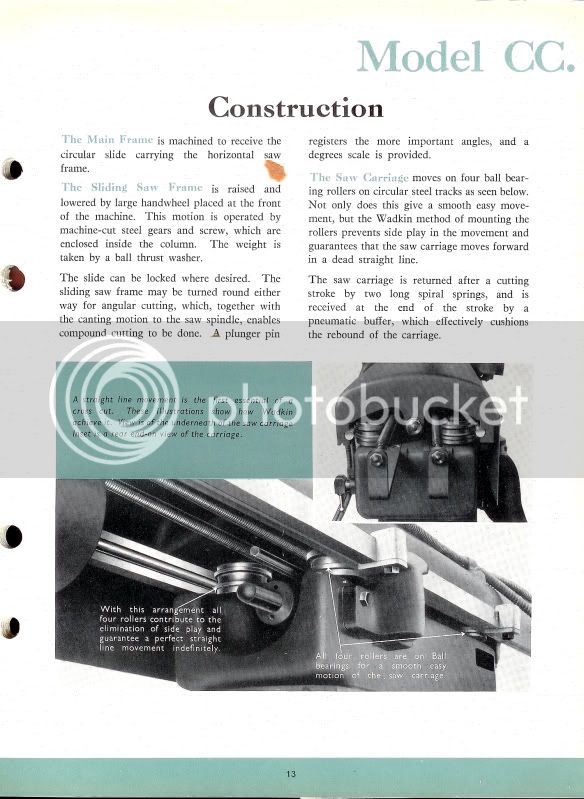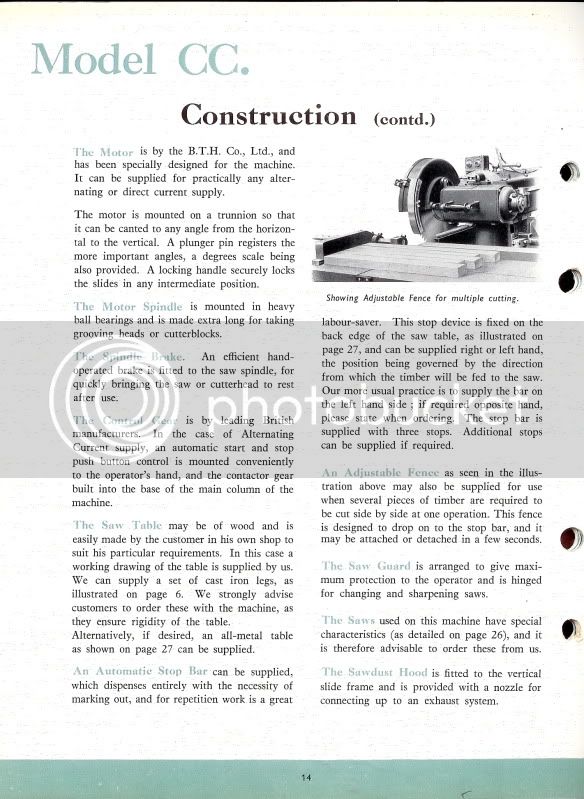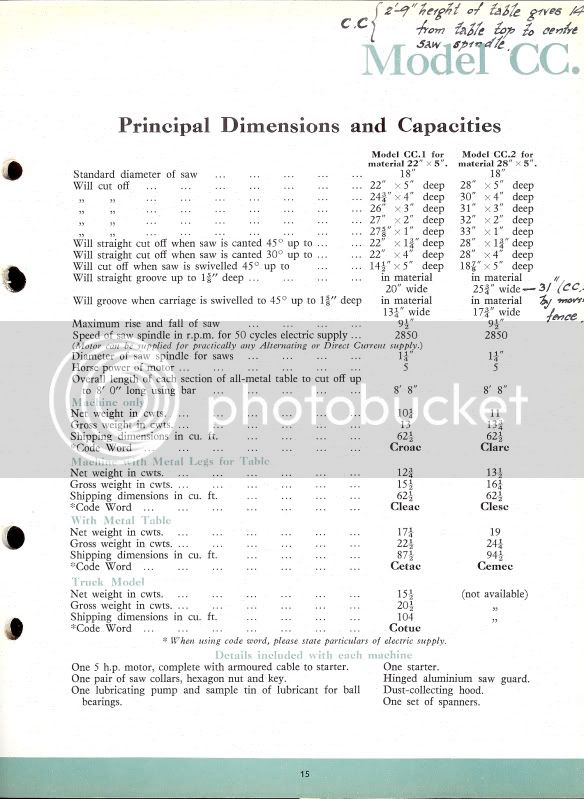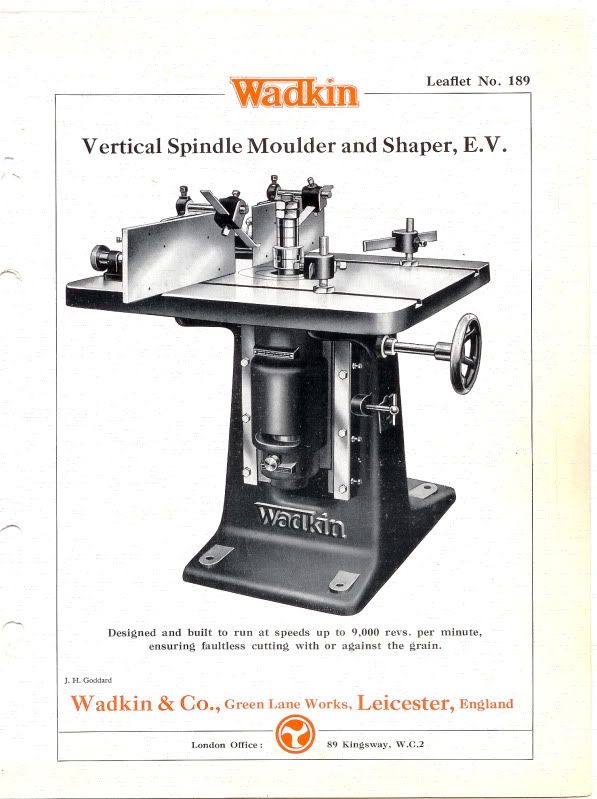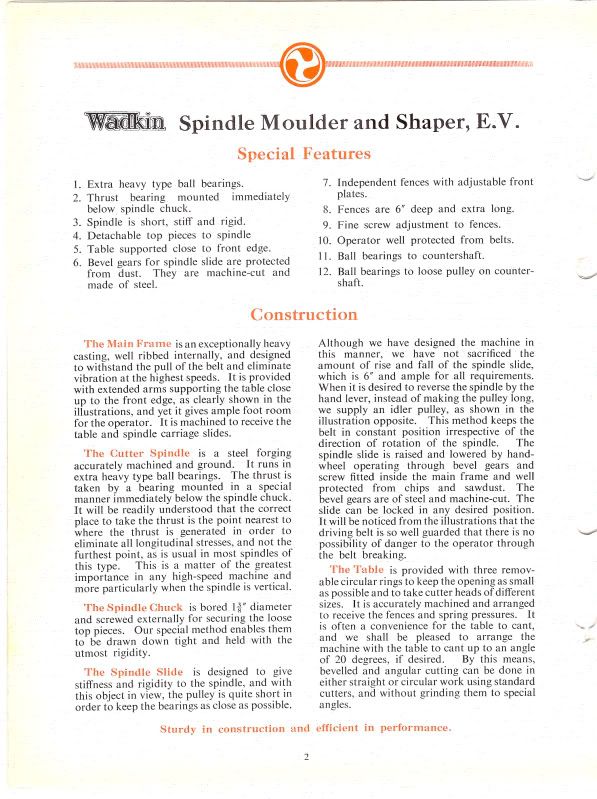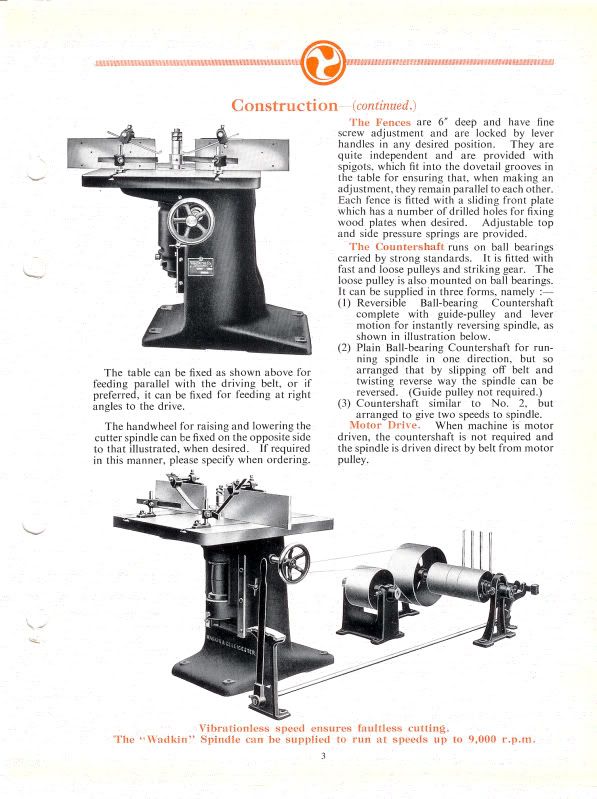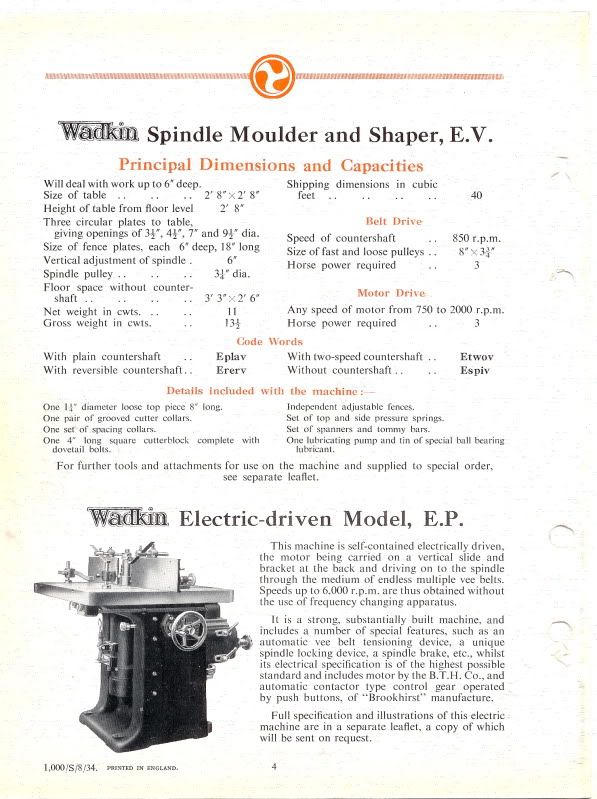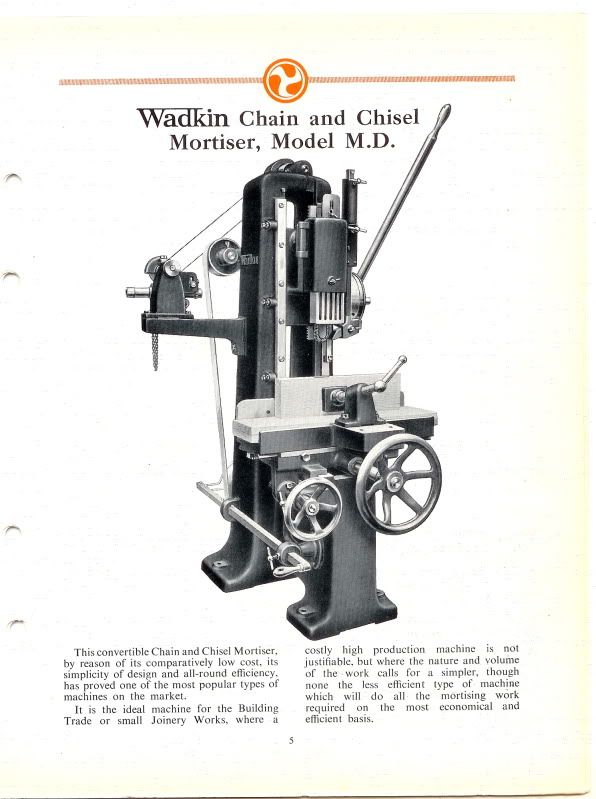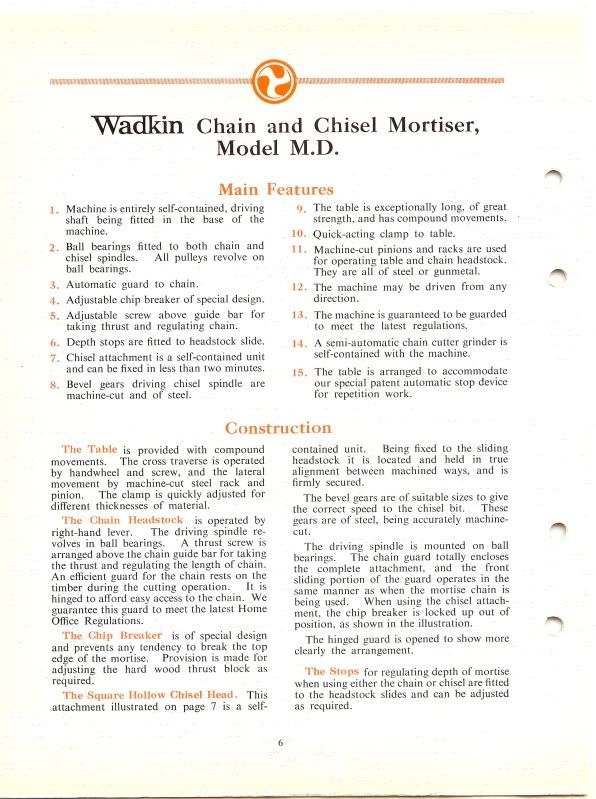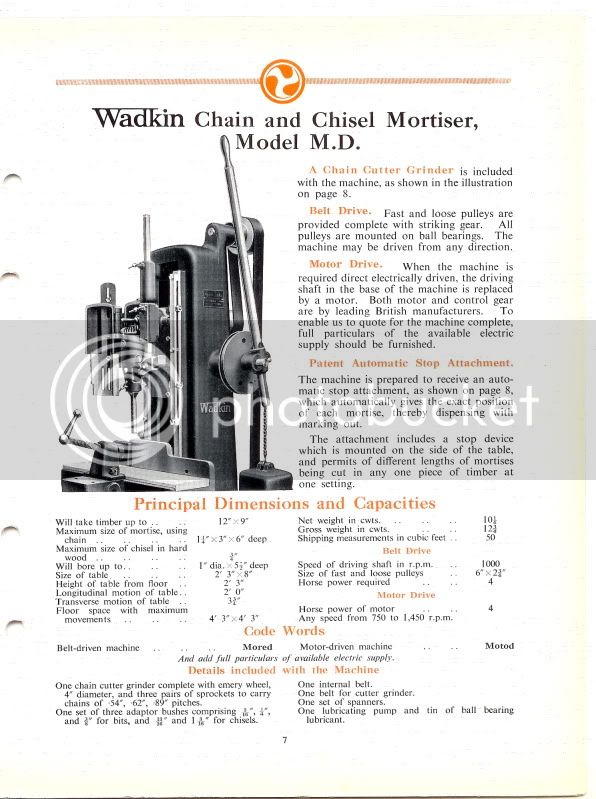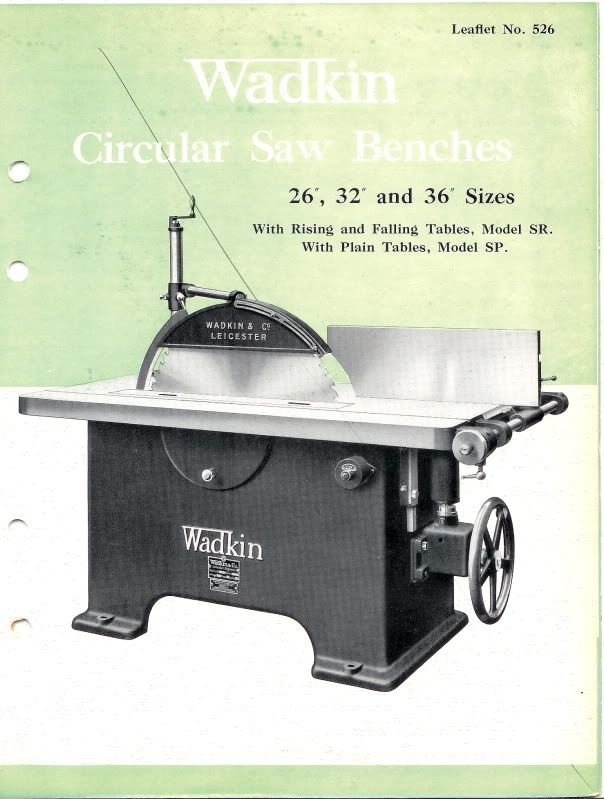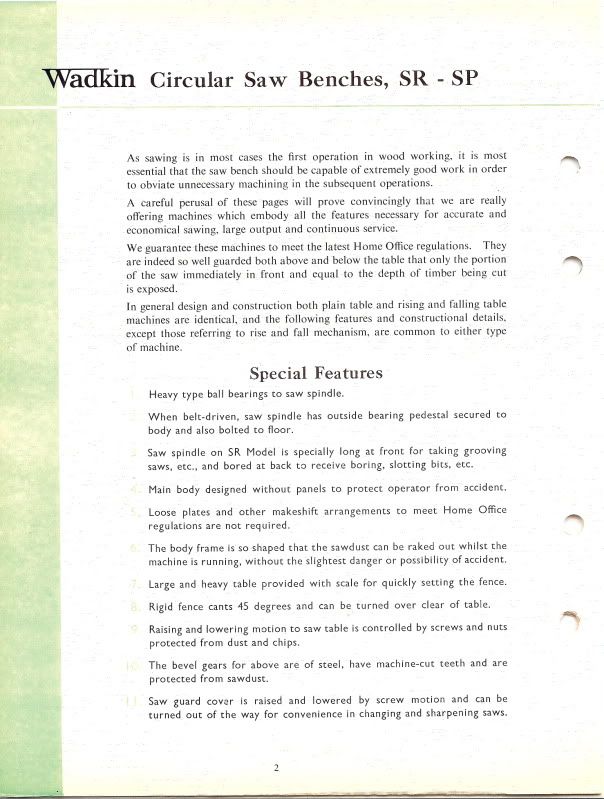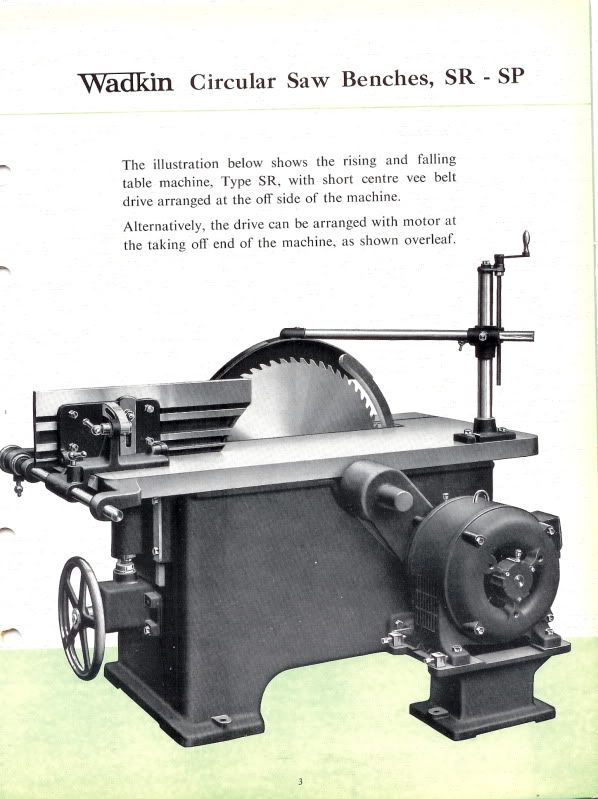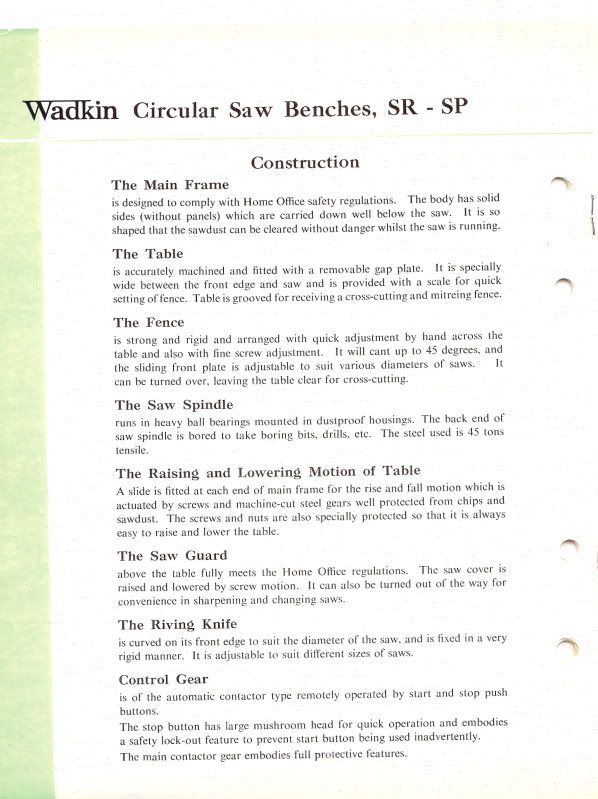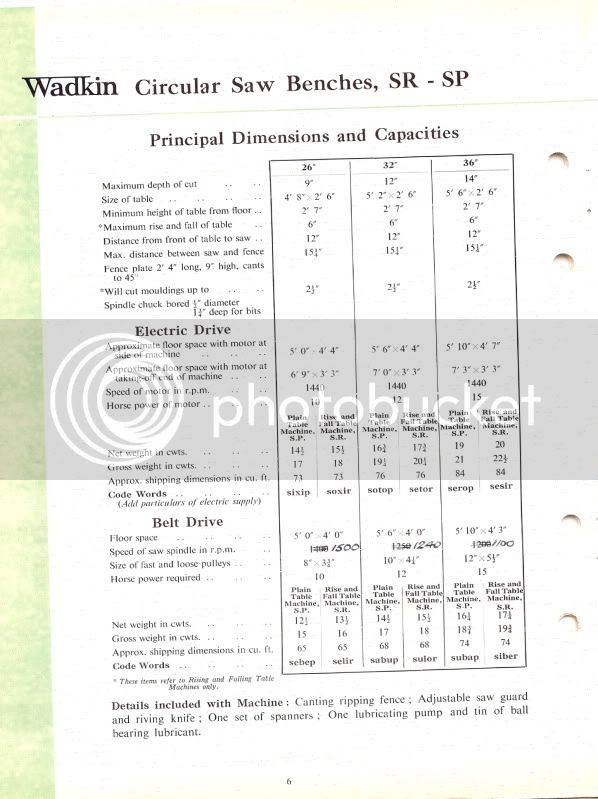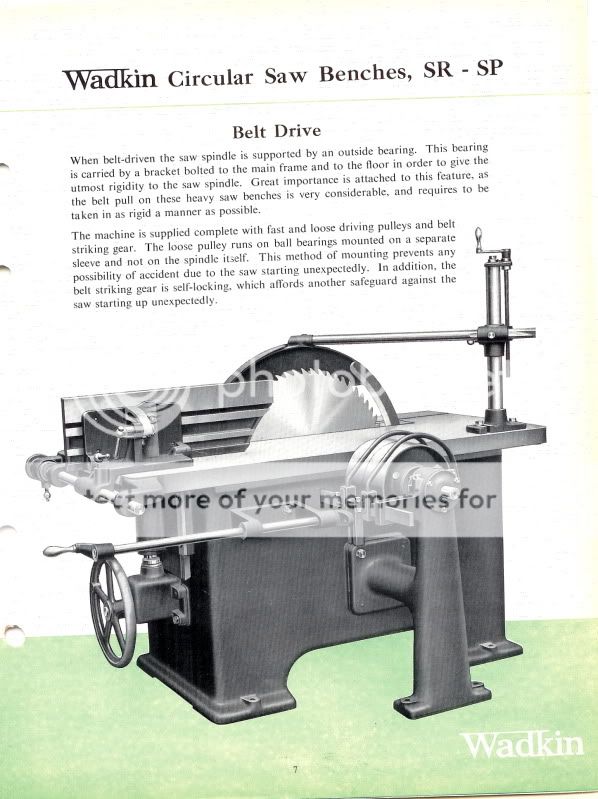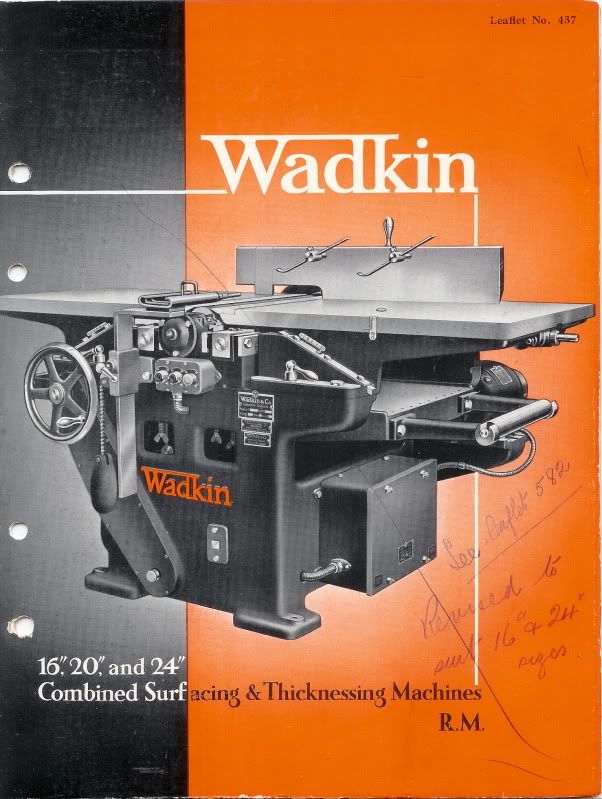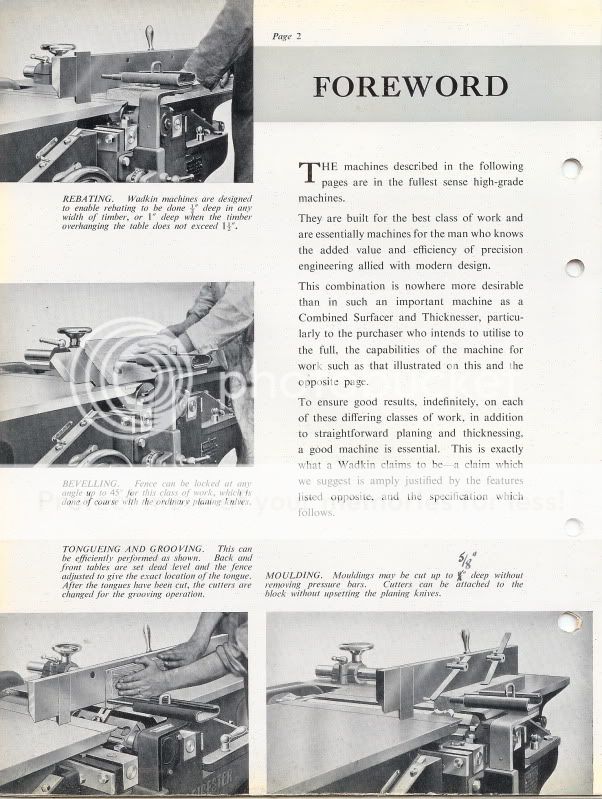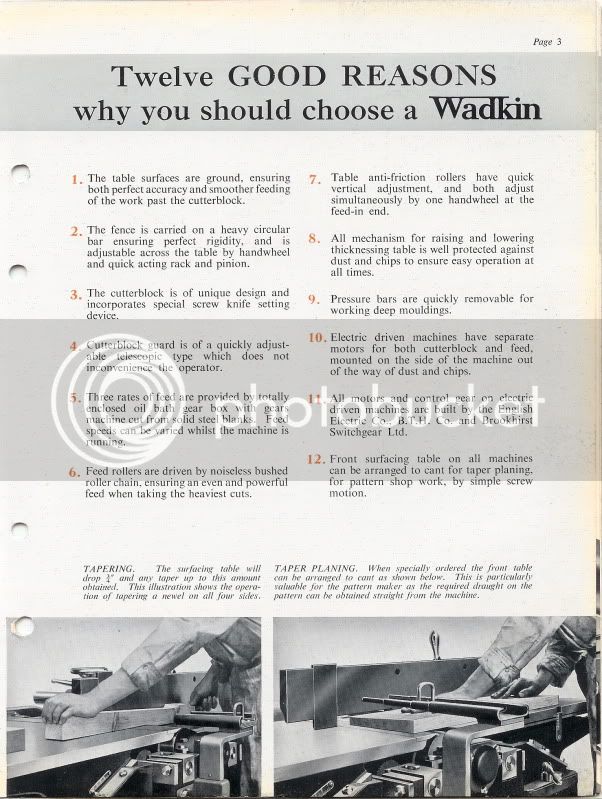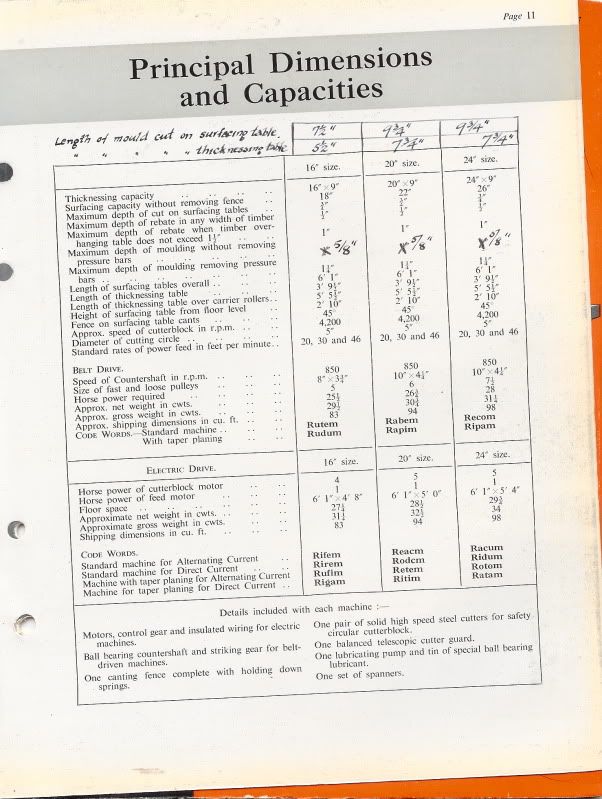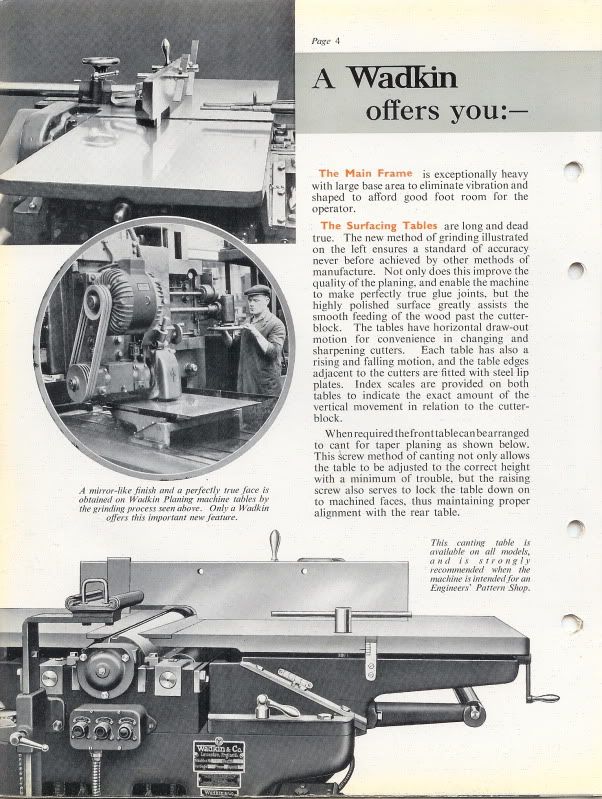I have been reading this post for days now in awe, and unable to write up a decent response because of work commitments, but the weekend is here and my learned colleague Jack has given me an introduction, and so here we go.
Jim and Douglas, thanks for posting this up, it is truly unbelievable.
Ben, thank you for giving everyone the opportunity to see these beautiful machines, as far as woodworking machinery enthusiasts are concerned what you have in your lounge room is an Aladdin's Cave full of shinny Gold and treasure, I personally would be happy with just the Wadkin machines you have, but thats just me.
Gentlemen I have some catalogue cuts that I would like to share with the group on Ben’s Wadkin machines and some discussion, please keep in mind also that from the Wadkin catalogues I have the earliest only spans from 1939 to 1944, the catalogues cut’s shown are when Wadkin was trading as a LTD company, say from 1936 as Jack has mentioned.
It is also interesting to note that even from the later edition catalogue cuts flat belt machinery was still an option for some machines, and more than likely being fazed out in the late 30’s early 40’s.
I am of the belief that the CC model docking saw may have been purchased the same time or close to as all the other machines, the plate on the electric motor mentions British Thompson Houston & Co who were, (in association also with General Electric) the first to make Electric motors for Wadkin under contract in 1928, the Motorized CC,CF,CD, and CK models eventually replaced the AY Model Pendulum cross cut saw.
The only machine that has really eluded me is the DH Bandsaw, I am only able to find a DR model in my catalogs (which I have placed up any way for good measure), and lets face it any bandsaw with Wadkin & Co - Leicester, with Cast raised letters into the C frame must be very old, I personally have never seen this particular model.
Other machines that have been hard to find catalogue pic’s of have been the NB grinder, I only had the NL very similar but having a turn wheel rather than two handles to move the surface grinder side, I do own one my self and its a nice bit of kit indeed.
Also the small tenoning machine with the missing badge turns out to be a EHA model, basically the Model before the ECA, I only had a very small Pic of that one in the back of another Brochure, Wadkin did make a larger machine that was the EKA, the belt driven version of this was the EL.
The EV Shaper does make me curious though, for a very old work shop this machine is missing its original fence set up, and has been replaced by a relatively modern equivalent, this seems very strange to me.
None the less even just looking at the photos of this shop I feel very much at home, I hope the machines have a future either restored, in use, on display at a historical venue, any thing but taken to scrap, I feel this is very much a part of our history and important enough for even our children at least to see how we once worked.
Melbourne Matty.
The DR not the DH.
The NB not the NL, similar but you get the idea.
A small Pic of the EHA tenoning machine
The CC Docking Saw.
The MD Mortiser.
The SR Rip Saw, very similar to the Earlier, PD Model.
The RM Under over Planer once again similar to the earlier MJ
Melbourne Matty.









